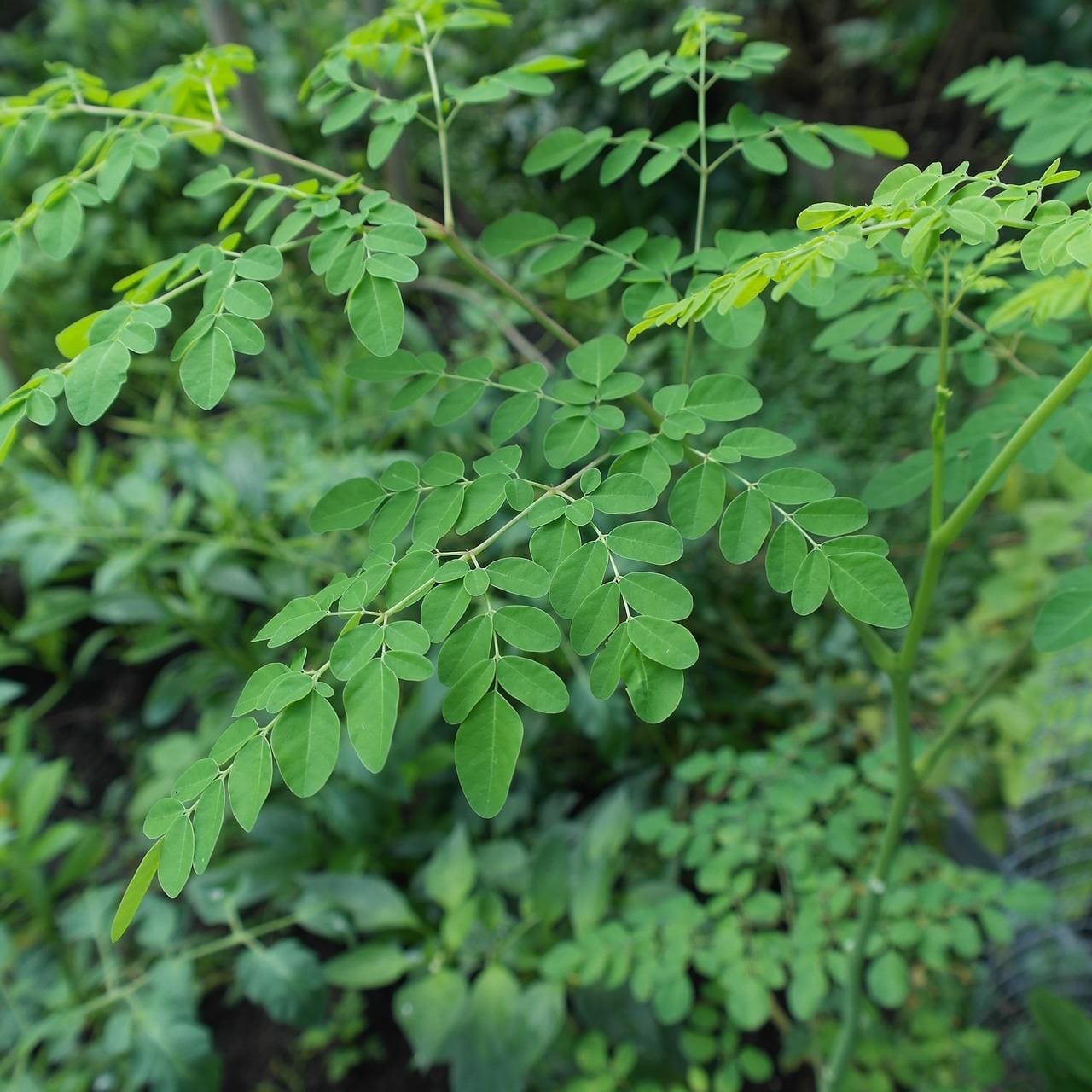
Moringa Leaves – 5 Reasons It’s a True Superfood
Moringa Leaves come from a sub-tropical tree known as “the drumstick tree,” and its botanical name is Moringa oleifera. Moringa (Moringa Leaves) is commonly touted as a superfood because it is rich in nutrients, antioxidants, and other beneficial compounds.
Moringa is an extraordinary food source in some parts of the world. When dried the leaves retain loads of vitamins and minerals. Moringa is used in Africa and India in food programs to combat malnutrition. The green seed pods when immature (drumsticks), are prepared similarly to green beans. When the seed pods are mature, the seeds are removed and roasted like nuts or cooked like peas.
The leaves can be used and cooked like spinach and great in scrambled eggs and omelets
5 Reasons Moringa Leaves are a Superfood*
1. Protein – 2 Times That of Yogurt
Proteins, considered the building blocks of our bodies are made of amino acids. Usually, only animal products such as meat, eggs, and dairy contain all of the essential amino acids. Amazingly, Moringa leaves also include them all!
2. Vitamin A – 4 Times That of Carrots
Vitamin A performs as a shield against diseases of the skin, eyes, diarrhea, heart, and many other illnesses. Carrots contain high amounts of vitamin A, but Moringa leaves are even higher.
3. Vitamin C – 7 Times That of Oranges
Vitamin C helps fight infectious diseases including colds and flu and strengthens our immune system. Citrus such as lemons and oranges are full of vitamin C. Moringa leaves have even more!
4. Calcium – 4 Times That of Milk
Calcium helps build healthy bones and teeth and helps prevent osteoporosis. Milk provides a lot of calcium, but Moringa leaves provide even more!
5. Potassium – 3 Times That of Bananas
Potassium is vital for the brain and nerves. Bananas are an excellent source of potassium. Moringa leaves provide a lot more!
*Nutritive Value of Indian Foods, by C. Gopalan, et al, and The Miracle
Tree – Moringa oleifera: Natural Nutrition for the Tropics, by Lowell
Fuglie, ed. More information: www.treesforlife.org/moringa.
These findings are based on 100g of Fresh, Raw, Moringa Oleifera Leaves (about 5 cups).
- Carrot Kale Juice Recipe For Everyone
- Apple Watermelon Juice For Refreshing Hydration
- Kohlrabi – A Nutrient Powerhouse
- For Better Health Eat Lots of Colors
- Chicken Tinola – Filipino Chicken Moringa Soup
- Benefits of Beets – Elevated to Superfood Status
- Zutano Avocado – A Rare Tasty Delight
- Garlic Roasted Carrots and Green Beans – Healthy Side Dish
- Rough Lemon – A Rare and Unique Citrus
- Celery Pineapple Juice – Refreshing and Nutritious
- Honey Glazed Carrots – Loaded with Antioxidants
- Catalogna Chicory Salad with Avocado, Grapefruit and Pumpkin Seeds
- 10 Low Carb Vegetables and How to Prepare Them
- Review – Farmer’s Choice – Naomi V
- Get the Most Out of Your Harvest Box – Ten Tips
- Microgreens and Tuna Salad – Nutrient Rich
- Watermelon Cucumber Cups – A Fun Appetizer or Salad

I wish someone would quantify how much you have to eat to get these rewards of being more nutritious
You’re right! I did more research and these findings are based on 100g of Fresh, Raw, Moringa Oleifera Leaves (about 5 cups). I’ll add this to the blog to clarify.
Is this something that can be added to a salad? Do you just eat the leaves raw by themselves? Can it be added to a smoothie or juiced? How long is the “shelf life” and does it need to be refrigerated or put the cut ends into water, like cut flowers, to keep fresh? If some are left after a week or so would it be something one could wash and then dry in the sun to use as a tea later? Please advise. Thank you!
Yes, you can add to a salad, yes raw. Smoothies and juiced are perfect. The fresh shelf life is not that long, but drying them is a great way to preserve them and use.
Thanks, Randall! I love being introduced to new healthy foods and especially like that you give these informational articles to tell me how to use the produce and what benefits each one offers! You provide a great service. I am happy to be a customer!
Your welcome Deb. It’s so important for us to have a diversified diet.
Amazing post, thanks for sharing this article. I am truly motivated by you for blogging.
Thanks again.